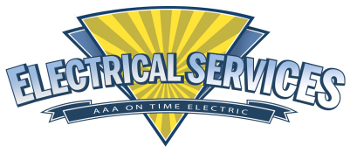
786-487-7441
Commercial / Residential Electrical Services
LICENSE # 13002896

786-487-7441
Commercial / Residential Electrical Services
LICENSE # 13002896
Fulfill the Educational Requirements Become a Master Electrician
If you’re technically adept and interested in providing a service that helps the modern world go round, consider becoming an electrician.
Licensed, or master, electricians are highly-trained technicians whose responsibilities include everything from replacing an electrical outlet to wiring a newly-constructed house or building. This article provides information on the work of an electrician, the educational and training requirements for becoming an electrician, and how to get your license.
Electricians work in a variety of settings, including homes, businesses, schools, hospitals – any type of facility that needs electricity to function. Electricians may also perform electrical work on trains, airplanes, ships and vehicles. Electricians’ work includes the following:
Reading blueprints, or technical diagrams of a work site’s electrical wiring.
Have an aptitude for electrical work. Electricians are adept at diagnosing problems and using good judgement and the right techniques to solve them. Electricians have the following traits:
Electricians know that glossing over details in a wiring project could at best result in non-functioning wiring, and at worst create a dangerous situation.
They have strong manual dexterity. Electricians work with small tools and parts that must be handled with care and precision. They often have to climb ladders or enter crawl spaces to perform their jobs.
They are flexible. Electricians are comfortable working at many different sites, under a variety of conditions. They are able to effectively communicate with managers and members of construction teams.
Obtain your high school diploma or GED. This is usually the minimum education you’ll need to work as an electrician’s apprentice and eventually become a licensed electrician, according to the Bureau of Labor Statistics. Completing vocational courses in industrial or electrical technology while in high school can be helpful as well.
This can provide you with some of the foundation knowledge you may need as you learn your trade.
look a position as an electrician’s apprentice. An apprenticeship is a training program that allows you to work alongside and under the supervision of an expert electrician to learn the job through hands-on training.
Many electricians are willing to take on an apprentice because it allows them to have an extra set of helping hands but at a lower rate of pay. Having some background in electrical technology prior to seeking an apprenticeship may give you a competitive advantage over other potential applicants.
The Bureau of Labor Statistics notes that the typical apprenticeship is about four years in length. The Chapter of Associated General Contractors has a four-year apprenticeship program that can provide you with an opportunity to work as an apprentice.
Enroll in electrical technology courses at a technical school or community college.
Many apprentices will receive their training through a combination of hands-on instruction and classroom training. Enrolling in courses at the same time you are applying to become an apprentice can show the master electrician you are applying to work under that you are serious about becoming an electrician .
Get your license. Almost all municipalities require electricians to pass a licensing exam that tests their knowledge of electrical theory, the national electrical code, as well as local electronic and building codes.
Complete a licensing application and send to a Board of Electrical Examiners close to your city .
All applications must include verification of employment and training. You must work a total of 8,000 hours or have four years of experience as an apprentice in order to be eligible.